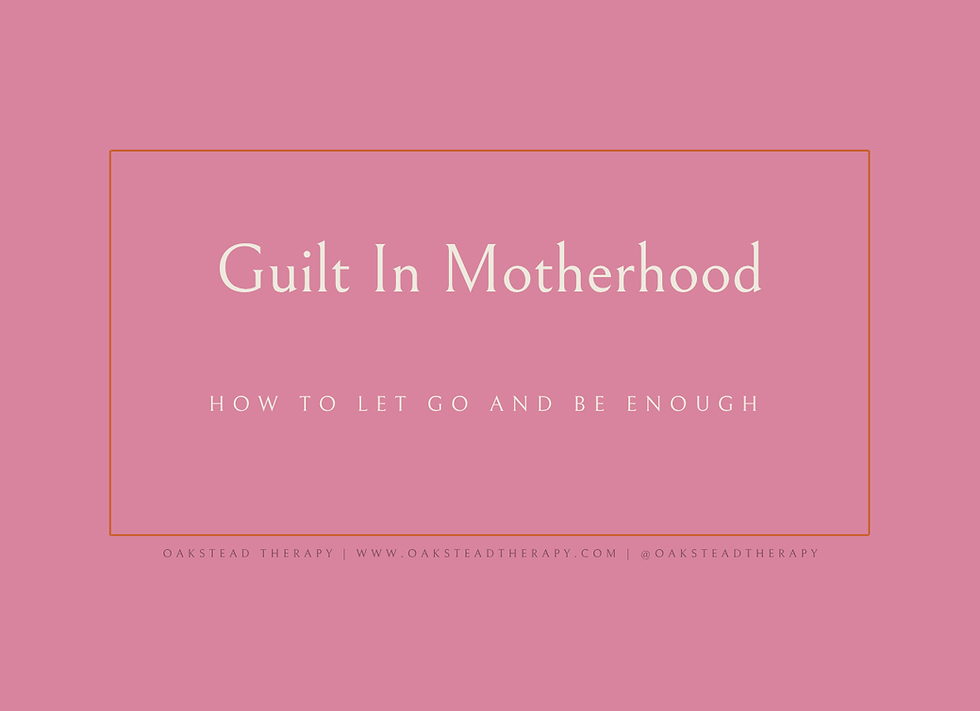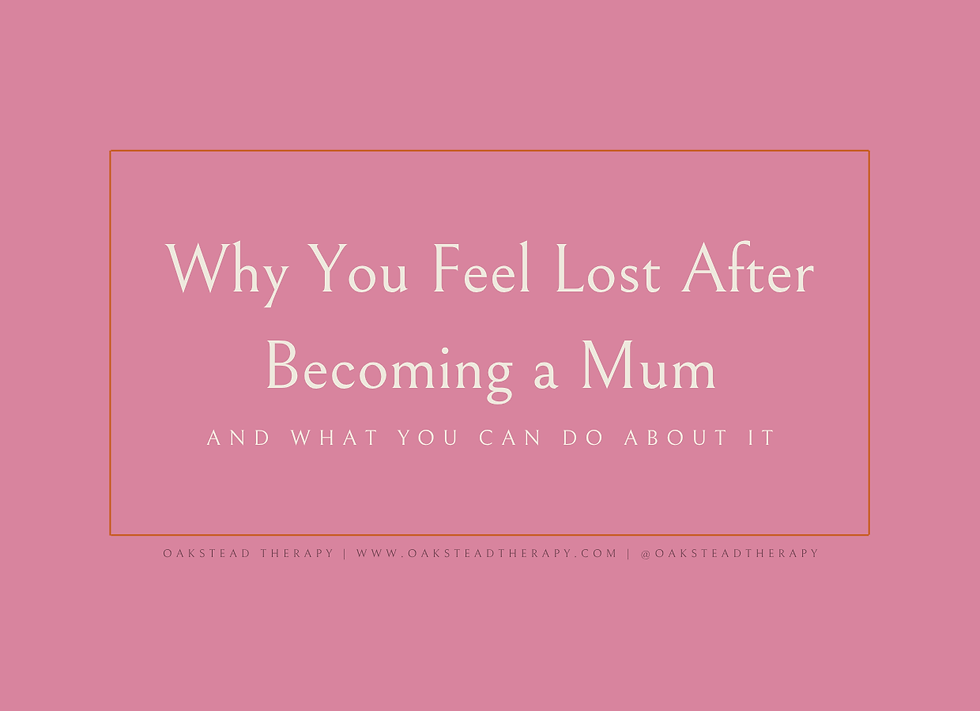Guilt in Motherhood: How to Let Go and Be Enough
- Jul 7, 2025
- 3 min read
Updated: Aug 1, 2025

If you're a mother, chances are you've met guilt - and you've probably met her often.
Guilt shows up in the quiet moments, the busy mornings, and the long nights. She whispers that you should be doing more. That you should be more patient, more present, more everything.
Mum guilt is one of the most common emotional struggles mothers face, but it doesn't have to be the loudest voice in your story.
Let's talk about where this guilt comes from, how it shows up, and - most importantly - how to start letting it go so you can embrace the fact that you are already enough.
Why Mum Guilt Feels So Heavy
Guilt in motherhood often grows from unrealistic expectations.
We are surrounded by messages that tell us what a "good mum" should look like:
She should always be patient.
She should never raise her voice.
She should breastfeed, but not for too long.
She should go back to work, but not too soon.
She should take care of herself, but never at the expense of her family.
It's a no-win cycle.
We set impossible standards for ourselves - and then punish ourselves when we inevitably fall short.
Mum guilt also grows from comparison - scrolling through carefully curated social media posts, seeing the highlights of other mums' lives, and measuring our own messy, behind-the-scenes moments against them.
The Common Face of Mum Guilt
Mum guilt can look like:
Feeling bad for bottle-feeding instead of breastfeeding.
Worrying you're not spending enough quality time with your child.
Feeling selfish for wanting time away from your family.
Struggling with the decision to return to work or stay at home.
Believing that every meltdown, sleepless night, or hard moment is somehow your fault.
The underlying story is always the same:
"I'm not doing enough. I'm not enough."
But that story is not the truth.
How to Let Go of Mum Guilt
Letting go of mum guilt is a process, not a switch. It takes gentle, repeated practice to rewrite the story you're telling yourself.
Here's where to start:
Name It When It Shows Up
Start by noticing when guilt creeps in.
You might say to yourself:
"I'm noticing that I feel guilty right now. What is this guilt trying to tell me?"
Often, guilt is pointing to an unrealistic standard you've set - not a real failure.
Challenge the 'Perfect Mum' Myth
Ask yourself:
Where did I learn that I have to be everything for everyone?
Is this expectation kind, realistic, or even humanly possible?
The 'perfect mum' doesn't exist. The good-enough mum does - the one who loves her kids, gets it wrong, tries again, and shows up in her messy, human way.
Talk to Yourself Like You Would a Friend
If your best friend say, "I feel so guilty for feeding my baby a bottle", what would you say to her?
Offer yourself the same compassion.
Self-compassion is the antidote to mum guilt. It softens the edges and creates space for you to be human.
Recognise That Your Needs Matter Too
Taking care of yourself - physically, emotionally, socially - is not selfish.
When you care for yourself, you model to your children that their needs will matter, too.
You don't have to martyr yourself to be a good mum.
Focus on Connection, Not Perfection
Children don't need perfect mothers.
They need mothers who are emotionally available, willing to repair after hard moments, and able to offer genuine connection.
Connection is what builds secure, healthy relationships - not perfection.
You Are Already Enough
Letting go of mum guilt doesn't mean you'll never feel it again. It means learning to see it, challenge it, and decide not to let it ruin your life.
You are already enough.
In the tired mornings, the bedtime battles, the days you feel like you've nailed it, and the days you feel like you've fallen short - you are still enough.
Your children don't need a perfect mum. They need you.
Need Support Letting Go of Mum Guilt?
If you're struggling to release guilt in motherhood or feeling stuck in cycles of self-doubt, therapy can help you unpack those stories, reconnect with yourself, and build more self-compassion.
You don't have to carry this alone.




Comments